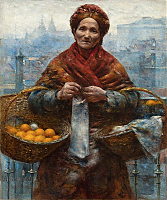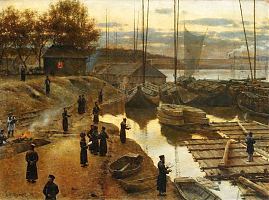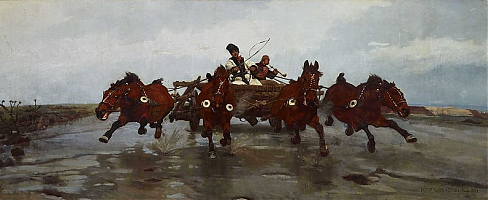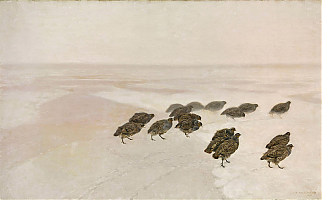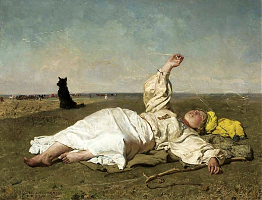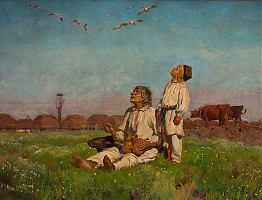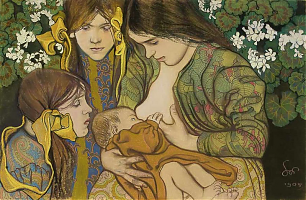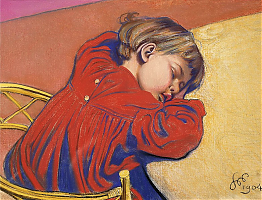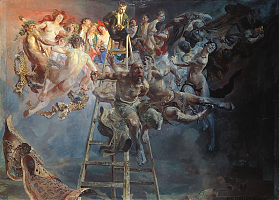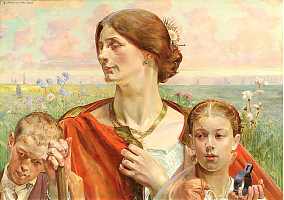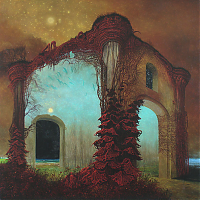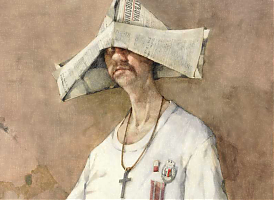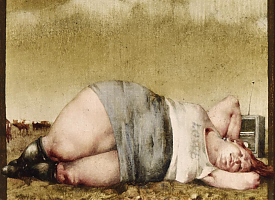Categories : 2018 | MK3 | MK3-2 | School | College | University | Foundation | Vancouver
Polish Art
Article posted 03 Apr 2019
I went to a great talk at Cosgrove Village Hall yesterday on Polish Art History by Sonia Bacchus, and from knowing next to nothing feel I at least know a bit now ;-) A lot of the painters were contemporary with some of my favourite paintings, albeit this was Impressionism Eastern European style. Sonia’s point about Polish art possibly being overlooked as a sort of Eastern Roman Empire/Byzantine way was interesting, and I really had forgotten about the hardships of life behind the Iron Curtain in the 1970s and 80s, when even denim jeans were exotic.
The speaker’s enthusiasm was contagious even if the difficulty of being a country–as she put it–‘between two greedy neighbours’ was always there as a thing in the background to the art–even before we looked at paintings by the Father of Polish Art , we looked at maps showing Poland between Germany and Russia, and also Austria-Hungary to the south. I distinctly remember that it was always very fraught to play anywhere in the middle of the continent in either Risk or Diplomacy, and it was always better to be, say, a rainy island off to the north west somewhere.
For my own records I jotted the names down and have that at least as a reference.
Jan Matejko
The father of Polish Painting. Battle of Grunwald showing victory of the allied Kingdom of Poland and Grand Duchy of Lithuania over the Teutonic Order.
Aleksander Gierymski
Jewess with Oranges and Feast of Trumpets, complete with steam train in the background.
Józef Chełmoński
Four in Hand with horses harnessed across rather than 2×2, Storks, Partridges in the Snow and also Indian summer
Stanisław Wyspiański
Jacek Malczewski
Motherland –with ‘handcuffs’ aka manacles and regal red– and Vicious Circle
Olga Boznańska
Motherhood in soft focus with almost no outlines, but whose work rewards careful study, especially the still life paintings.
Stanisław Witkiewicz
Sheep in the Mist and also the architectural Zakopane Style
Stanisław Ignacy Witkiewicz aka ‘Witkacy’
Alina Szapocznikow
Trained in Prague and later lived in Paris. Surrealism and Pop Art such as Bellies
Zdzisław Beksiński
Trained as an architect, painted on hardboard and never titled his work such as a this one
Jerzy Duda-Gracz
The couple we looked at I couldn’t find on Wikipedia: this one and this

